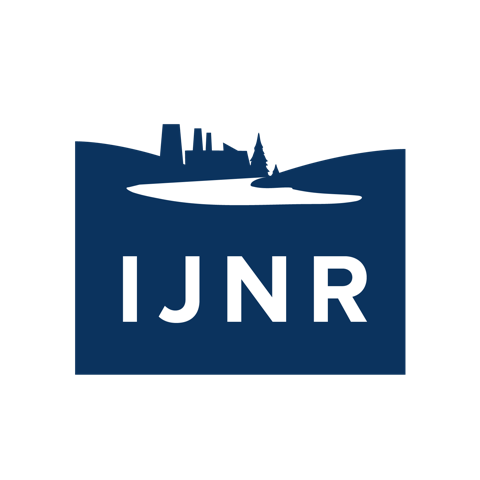Special Initiative:
Grants for reporting on Marine Indigenous Protected and Conserved Areas in Canada
Proposals due March 29, 2024
Call for Proposals:
The Institute for Journalism & Natural Resources invites proposals from journalists or news outlets for reporting projects that cover Indigenous Protected and Conserved Areas (IPCAs) in Canada, with a particular focus on marine areas. We are looking for ambitious journalistic projects that shed light on this emerging future of conservation, the complicated politics of IPCAs, and how Indigenous communities are leading the way on landscape-level protection. (Read examples of past IPCA reporting projects.)
Background:
As outlined by Canada’s Indigenous Circle of Experts (ICE), “IPCAs describe a variety of land protection initiatives in the Canadian context. Examples include Tribal Parks, Indigenous Cultural Landscapes, Indigenous Protected Areas, and Indigenous conserved areas. IPCAs are lands and waters where Indigenous governments have the primary role in protecting and conserving ecosystems through Indigenous laws, governance and knowledge systems. Culture and language are the heart and soul of an IPCA.” It is ICE’s vision that all of Canada’s protected areas be managed in partnership with Indigenous governments, in accordance with the United Nations Declaration on the Rights of Indigenous Peoples (UNDRIP), and within the restorative, trust-building framework that the Truth and Reconciliation Commission seeks to establish.
Momentum has grown steadily since the first IPCA was established in 2018, and Indigenous communities are making tremendous progress in reclaiming guardianship of their lands and waters. Yet questions still abound regarding jurisdiction, implementation, management, enforcement, funding, intentions, purpose and trust. Viewed through the lens of history, and acknowledging the often fraught relationship between Indigenous Nations and the Canadian government, it becomes clear that the story of IPCAs isn’t just about conservation – it’s also about sovereignty, inter-governmental relations, cultural resilience and justice. Equally important is who frames the narrative and which voices are heard.
Largely untold, these stories are complex, nuanced – and often unfolding in Canada’s most remote regions. IJNR, with the support of the Gordon and Betty Moore Foundation, will provide grant funding for journalists or news outlets interested in diving deeper into this topic.
Guidelines for proposals:
Proposals may be for up to $15,000 (USD).
Grant money may be spent on any costs incurred for normal reporting activities: travel, lodging, research, etc.
For individuals: Up to 20% of the grant may be spent on compensation; the total amount spent on compensation may not exceed $3,000.
For outlets: Up to 50% of the grant may be spent to compensate reporters/photographers/etc. working directly on the project. Grant dollars may not be used as general operating funds.We will accept proposals from individual journalists as well as news outlets.
Individuals will receive their full grant at the outset of their project; outlets will receive 50% of the grant up front, and 50% upon publication/airing. (Exceptions may be possible for outlets that already have a relationship with IJNR.)
To be considered, freelance journalists MUST include a commitment from an editor/outlet to publish the story.
Both Indigenous and non-Indigenous journalists are welcome to apply; we strongly encourage proposals for projects/publications/collaborations led by or including Indigenous journalists.
Grants must be spent within 18 months of receipt. If not, one of three scenarios will occur:
1) Awardee may submit a modified project timeline to IJNR for approval, explaining delay.
2) If the reporting project has become unviable, the awardee may pitch an alternate project to be supported with the funds, and IJNR must approve it.
3) The awardee returns their grant money to IJNR.Award recipients will agree to provide IJNR with a brief progress report at a mutually specified time during the reporting process.
Stories must in some fashion acknowledge the support of both IJNR and the Moore Foundation. For example, “"Reporting for this article was made possible by an award from the Institute for Journalism and Natural Resources and the Gordon and Betty Moore Foundation.”
Proposals must focus on Canada’s Indigenous Protected and Conserved Areas, and more specifically on marine initiatives.
Journalists (and outlets) from the U.S. and Canada are welcome to apply.
Liability disclaimer: IJNR's role is solely to provide grants for reporting purposes. Neither IJNR nor the Moore Foundation assume any liability for legal or safety risks undertaken during the course of reporting.
Proposal Requirements:
Brief (100 word) synopsis of proposal
Proposal: Please tell us about your project, including how it fits within the IPCA focus, why you believe you are well-positioned to cover it, where your reporting will require you to travel, and how you plan to disseminate your completed product (please be specific about which news outlet(s)). Limit answer to 2 pages.
Budget and Timeline: Please outline the complete project budget. Please give a detailed estimate of the timeframe of the project, including targeted completion date. Limit answer to 2 pages.
Resumé/CV
Supporting materials:
If you are a freelance journalist, please include a letter of commitment from an editor.
If you are an employee of a newsroom applying as an individual, please provide confirmation that your outlet is committed to running this story.
Work samples, as well as letters of reference/recommendation, are welcome but not required
Applications must be submitted via Submittable.
Questions? Please contact Melissa Mylchreest (melissa@ijnr.org).
This reporting initiative made possible by the generous support of the Gordon and Betty Moore Foundation.


